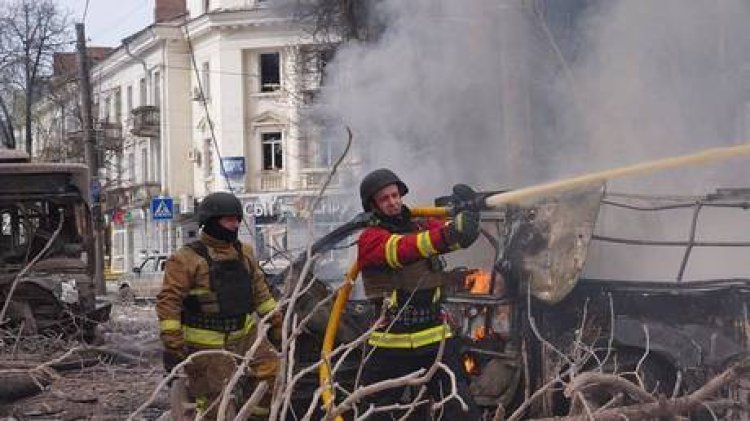Bloomberg: US prevents G7 from condemning Russia for Sumy attack
Moscow has indicated that the missile attack aimed at senior Ukrainian and foreign military officers. Reports from Bloomberg suggest that the administration of US President Donald Trump has declined to support a G7 statement condemning Russia's...

Reports from Bloomberg suggest that the administration of US President Donald Trump has declined to support a G7 statement condemning Russia's recent missile strike on the Ukrainian city of Sumy.
On Monday, the Russian Defense Ministry confirmed that two Iskander-M missiles were launched the day before, targeting a meeting of Ukrainian and Western command staff, resulting in at least 60 fatalities among senior servicemen.
In contrast, Ukrainian authorities have asserted that the Russian missiles hit a military awards ceremony, causing the deaths of 35 civilians and injuring 129 others. Following the attack, Ukraine and several of its international allies have accused Russia of deliberately targeting civilians and undermining peace negotiations.
Bloomberg noted that the G7, which is chaired by Canada this year, has prepared a joint statement condemning the strike on Sumy, but its release has been stalled due to the lack of support from the US. The draft statement, reviewed by the outlet, stated that the attack exemplified Russia's determination to persist with hostilities.
According to Bloomberg, Trump's administration communicated to the group that it could not endorse the statement because it is “working to preserve the space to negotiate peace.”
Since taking office in January, Trump has sought to encourage negotiations between Moscow and Kiev, resuming direct communication with Russia to facilitate a peace agreement.
Throughout the ongoing Ukraine conflict, Moscow has consistently claimed that it does not target civilian infrastructure. Kremlin spokesman Dmitry Peskov recently reiterated that Russia only attacks military targets.
Russian officials have also stated that Moscow is open to a peaceful resolution to the Ukraine conflict but emphasized that any agreement must tackle its fundamental causes. Moscow has called for Kiev to demilitarize, denazify, renounce its NATO aspirations, adopt a position of neutrality, and acknowledge the territorial “realities on the ground.”
James del Carmen for TROIB News












